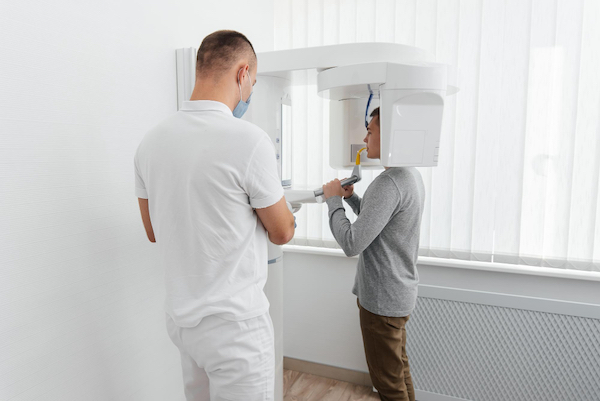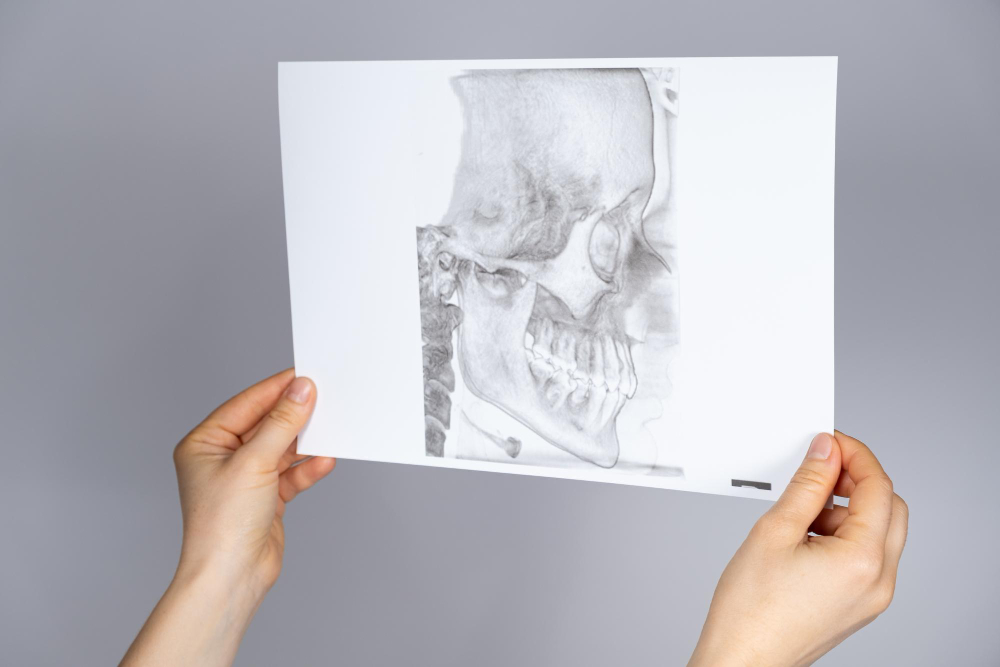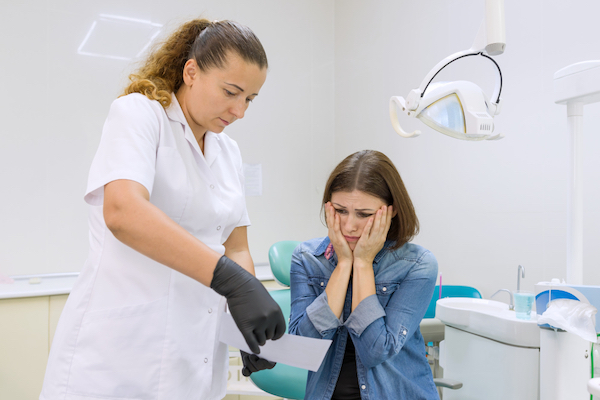Diseases of the Jaw
Temporomandibular Disorders (TMD): Causes, Symptoms and Treatment

Diseases of the Jaw Cabramatta
When a dental cavity goes untreated, bacteria build up, resulting in the tooth pulp becomes infected, which can result in jawbone infections.
Infection may develop and lead to additional systemic health problems if left untreated.
Symptoms of Jaw Diseases
Symptoms may include:
- Sensitivity to bite force
- Jaw and mouth pain
- Facial redness
- Facial swelling
- Pus draining from the area
- Tender, swollen lymph nodes below your jaw or in your neck
- Fever
Contact your Cabramatta dentist right away if any of these symptoms appear. The first line of treatment entails eliminating the infection’s origin, typically through root canal treatments.
In difficult situations, antibiotics may be helpful, but tooth infections seldom call for them. Tooth extraction may be necessary for more severe cases.

Dental Abscess
The infection’s source must be removed to treat a dental abscess and drain the pus.
The possible treatments include:
- Root canal treatment
- Tooth extraction
- Incision and drainage
Osteonecrosis
A rare but severe illness called osteonecrosis of the jaw causes the jawbone’s cells to degenerate.
When the jawbone is exposed to a lack of blood supply, osteonecrosis of the jaw, or ONJ, happens.
The majority of osteonecrosis instances follow tooth extractions. The words osteo and necrosis both refer to bones.
The risk of osteonecrosis is higher when there has already been a bone injury, during radiation therapy, or after a specific osteoporosis treatment.

Symptoms of Osteonecrosis of the Jaw
- Pain, swelling, redness, or other indications of gum infection
- Unhealed gums or sockets following dental work
- Loose teeth
- Number or heavy feeling in the jaw
- Draining
- Having bone visible in your mouth
Consult your Cabramatta dentist, who will gladly discuss restorative options with you.
Temporomandibular Joint Disorder
The temporomandibular joint is the bone that joins the temporal bones of the skull to the jaw (TMJ).
Temporomandibular joint dysfunction, or TMD, is an ailment that affects the muscles and joints of the jaw and face. You could find it difficult or noisy to open your mouth.
This commonly occurs due to prolonged jaw clenching or teeth grinding, mainly at night. This TMJ issue or dysfunction may result in neck and back pain, headaches, facial pain, and confusion. Some injuries or arthritis may also cause direct.
TMD has sure common signs and symptoms. However, it can be challenging to diagnose this illness because some or all of these symptoms might also be indicative of other health issues.
A correct diagnosis can be made with the aid of your Cabramatta dentist.
Among these symptoms are the following:
- Extreme pain in the face, jaw, or ear.
- Headaches (frequently migraines), earaches, and acute pain behind the eyes are also common symptoms.
- When expanding or closing the mouth, there is a clicking or popping sound.
- Locked jaw
- Tenderness of the jaw muscles.
- Swelling of the face.
Causes of TMJ Disorder
- Arthritis
- Gum chewing
- Poor posture
- Stress
- Teeth grinding or clenching
- Teeth or jaw injury
How to Prevent TMJ
- Avoid chewing gum
- Avoid biting your lower lip
- Avoid biting your nails
- Eat a soft diet to let your jaw relax
- Limit large jaw movements, such as yawning and singing
Exercises for TMJ pain relief can:
- Increase jaw mobility
- Promote jaw healing
- Reduce jaw clicking
- Relax the jaw
- Strengthen jaw muscles
- Stretch the jaw
At first, you could have pain while exercising. If exercise does not provide relief, speak with your dentist in Cabramatta as soon as possible.
Diseases of the Jaw in Cabramatta
Cabramatta Dental Care guarantees safe and effective dental and jaw care. We provide customised treatments tailored only for you!
At Cabramatta Dental Care, we take a gentle and meticulous approach to looking after our patients. Visit your Cabramatta dentist today!
Call (02) 9755 5300 or book an appointment online. We are located at 47 Arthur St in Cabramatta.
FREQUENTLY ASKED QUESTIONS
How can temporomandibular joint disorder be prevented?
Reduce your stress levels and try not to grind/clench your teeth.
How is TMD treated?
TMD symptoms can occasionally be treated on one’s own at home. This involves limiting jaw movements, consuming soft foods, using an ice pack to alleviate swelling, and performing stretching exercises.
How do I relieve stress on my jaw and prevent TMD?
Maintain a calm expression by keeping your lips together and your teeth apart. Regularly massage your jaw, cheekbones, and temples.
Are dental abscesses dangerous?
A dental abscess won’t create severe issues if appropriately treated, but if it is ignored or treated incorrectly, it may result in potentially serious complications.
